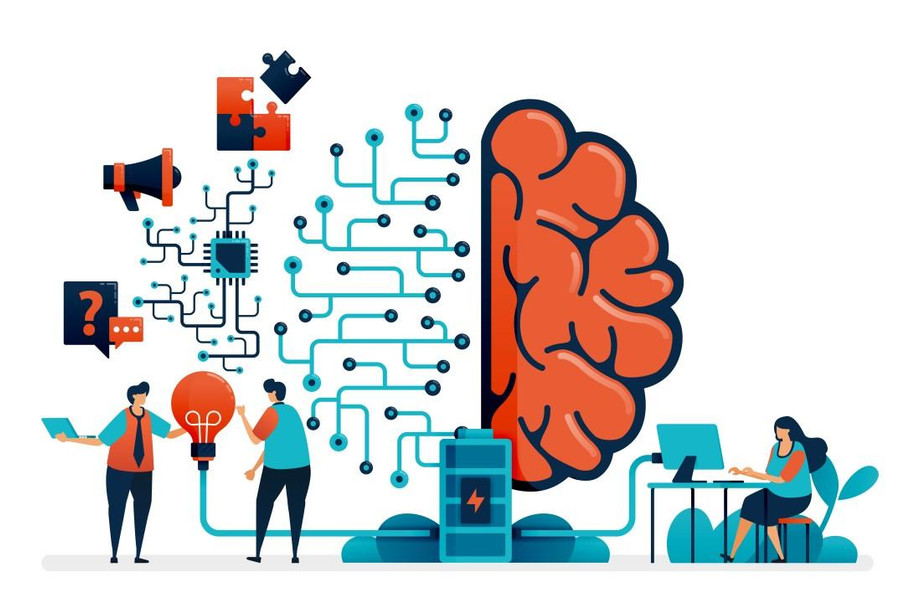In today’s rapidly evolving digital landscape, effective knowledge management is crucial for organizational success. Traditional methods of handling information and knowledge can be cumbersome, often leading to inefficiencies and lost opportunities. Enter generative AI platforms these advanced tools are revolutionizing the way organizations manage their knowledge, making the process more streamlined, efficient, and intuitive. In this blog, we’ll explore how generative AI platforms simplify knowledge management and the benefits they offer to organizations.
Understanding Knowledge Management
Knowledge management (KM) involves the processes of creating, sharing, using, and managing the knowledge and information of an organization. Effective KM ensures that valuable information is accessible and actionable, helping organizations to leverage their intellectual assets to achieve their goals. Traditionally, KM has relied on manual processes and disparate tools, which can lead to silos, inefficiencies, and difficulties in accessing relevant information.
The Role of Generative AI in Knowledge Management
Generative AI refers to artificial intelligence systems capable of generating new content or data based on existing information. Unlike traditional AI, which often performs specific tasks based on pre-programmed rules or models, generative AI can create new text, images, and other content, offering a dynamic approach to handling information. Here’s how generative AI platforms simplify knowledge management:
-
Automated Content Generation
One of the most significant advantages of generative AI is its ability to automatically generate content. This includes creating reports, summaries, and even responses to queries. For knowledge management, this means that generative AI can produce comprehensive documents and reports from existing data, reducing the need for manual content creation and ensuring that information is always up-to-date.
For instance, if an organization has a vast database of research papers and articles, a generative AI platform can analyze this content and generate summaries or new insights, making it easier for employees to access and understand the information they need.
-
Enhanced Search and Retrieval
Traditional search systems often rely on keyword matching, which can be limiting and lead to irrelevant results. Generative AI platforms use natural language processing (NLP) to understand the context and intent behind user queries. This allows them to provide more accurate and relevant search results.
Imagine a scenario where an employee needs information on a specific project but is unsure of the exact terminology used in the database. A generative AI system can interpret the context of the query and retrieve relevant documents, even if they use different terminology. This enhances the efficiency of information retrieval and helps users find the knowledge they need quickly.
-
Knowledge Integration and Synthesis
Organizations often have knowledge dispersed across various departments and systems. Integrating and synthesizing this information can be challenging. Generative AI platforms can bridge these gaps by consolidating data from multiple sources and presenting it in a cohesive manner.
For example, a generative AI platform can integrate data from customer feedback, market research, and sales reports to provide a unified view of customer trends. This synthesized knowledge helps organizations make more informed decisions and develop strategies based on a comprehensive understanding of their data.
-
Personalized Knowledge Recommendations
Generative AI platforms can analyze user behavior and preferences to offer personalized knowledge recommendations. This means that employees receive suggestions for relevant documents, training materials, or expert contacts based on their roles, projects, or past interactions.
By tailoring recommendations to individual needs, generative AI helps users access the most pertinent information without having to search extensively. This personalization enhances productivity and ensures that employees have the resources they need to perform their tasks effectively.
-
Continuous Learning and Improvement
Generative AI systems are designed to learn and improve over time. As they interact with users and process more data, they refine their algorithms and enhance their performance. This continuous learning process ensures that the AI platform becomes more adept at managing knowledge and providing valuable insights.
For instance, if a generative AI platform is used for customer support, it will learn from each interaction to improve its responses and recommendations. This leads to better knowledge management as the system becomes more proficient at understanding and addressing user needs.
-
Facilitating Collaboration and Knowledge Sharing
Knowledge management is not just about storing information; it’s also about sharing it effectively. Generative AI platforms can facilitate collaboration by enabling real-time knowledge sharing and communication. They can assist in creating collaborative documents, managing version control, and tracking changes.
For example, in a team project, a generative AI platform can help generate and update collaborative reports, track contributions from different team members, and ensure that everyone has access to the latest information. This fosters a more collaborative work environment and ensures that knowledge is shared seamlessly across the organization.
-
Reducing Knowledge Gaps and Redundancies
In many organizations, knowledge gaps and redundancies can occur due to inconsistent documentation practices or the loss of institutional knowledge. Generative AI platforms can help identify and address these issues by analyzing existing knowledge repositories and highlighting areas where information may be lacking or duplicated.
-
For example, if there are multiple versions of similar documents or conflicting information in different sources, a generative AI platform can consolidate these documents and provide a single, authoritative version. This reduces confusion and ensures that employees are working with accurate and up-to-date information.
Conclusion
Generative AI platforms are transforming knowledge management by automating content creation, enhancing search and retrieval, integrating and synthesizing knowledge, providing personalized recommendations, facilitating collaboration, and addressing knowledge gaps. These capabilities not only streamline the management of information but also empower organizations to leverage their knowledge more effectively.
As technology continues to advance, the role of generative AI in knowledge management will likely expand, offering even more sophisticated tools and solutions for handling information. Organizations that embrace these technologies can gain a competitive edge by improving their efficiency, decision-making, and overall performance. In the age of information overload, generative AI platforms are proving to be invaluable allies in the quest for effective knowledge management.

